The world of athletics is rife with competition. This is certainly obvious — what would sports be without competition? That’s what makes it fun for both spectators and athletes, and it’s basically the definition of sports. However, the competition can be overwhelming, which can have devastating effects on the athlete.
I’ve been a swimmer for almost my entire life. I’ve swam for my club, Westside Aquatics, since I was 8 years old, but I didn’t start competing there until eighth grade, the year I also joined the Archer swim team. The idea of competition was daunting, and I was scared I wouldn’t be good enough. Eventually, when I built up enough courage, I dove into the icy waters of swim meets and fell in love with competing.
A year and many broken goggles later, I show up to swim meets every single chance I get; it’s one of my favorite activities. The only downside is I end up putting a lot of pressure on myself to be the best by comparing myself to other swimmers my age.
If there are faster swimmers, I think I’m not working hard enough. This mentality that I share with many other athletes can motivate me to work harder, but it can also be toxic and detrimental to one’s mental health. According to the National Library of Medicine, participation in organized sports can have negative effects on athletes, including “injuries, eating disorders and burnout.”
Even though athletes can feel anxiety from the pressure of their sport, there are also benefits. Pressure drives motivation, but only in moderation. According to Psychiatric Times, participation in competitive sports decreases the odds of depression by 25% and the odds of suicide by 12%.
When I’m up on the block and about to swim my race, I’m only ever thinking of one thing: the time I want to get. It runs through my head over and over and over. And I’ll be honest, most of the time when my hand touches the wall and my race is over, I’m disappointed. When I look at the scoreboard and see that I swam five seconds slower than my best, I feel a lump in my throat. It’s so hard to climb out of the pool and face the question I’m always bombarded with by my peers: “What time did you get?”
This question is hard — hard because I never want to answer it and hard because I always want to ask it of others. It’s a reflex to constantly compare myself to other swimmers, which builds resentment if I’m not as good as them.
The over-competitive aspect of high school sports today can lead to serious burnout. Kids start playing sports as young as 2 years old, and with external and internal pressure, it’s easy to fall out of love with the sport. Whenever I focus too much on my results in races rather than my process of getting there, swimming starts to feel like a burden. It’s no longer fun when I’m comparing my times to my friends’ and belittling my own accomplishments.
A practice I use to reduce stress when I’m hard on myself is to remember that growth isn’t always linear. One moment in time doesn’t reflect my athletic career as a whole. I’m constantly changing and progressing as an athlete and as a person, so I can’t use one bad day as a judgment for my entire life.
I also try to cheer for my teammates every chance I get. Obvious? Maybe. But I think it’s crucial for athletes and shouldn’t be overlooked. It’s especially imperative in swimming since it’s an individual sport. There aren’t many opportunities to connect with my teammates during practice, so cheering at meets is one of the best ways to bond.
Screaming at the top of my lungs, “You’ve got this!” allows me to forget about myself and focus on my peers. I step outside of my own world, support the people I care about and am present in the moment. This support makes a difference to my teammates. When someone is rooting for me, I feel 10 times more motivated and excited to swim knowing my encouraging teammate is behind the blocks.
All of this is to say, I love swimming. Every day, when I swing open the heavy metal gates of the aquatic center’s entrance, a smile always creeps upon my face. The best cure for the Sunday blues is knowing that come Monday, I’ll be in the pool with my teammates, cheering them on and giving swim my all. And when the competition starts to feel too heavy, I remember that someone else’s accomplishments can’t diminish mine. Everyone’s journey as an athlete is unique and individual, so I can be happy for my peers and for myself without ever comparing the two.



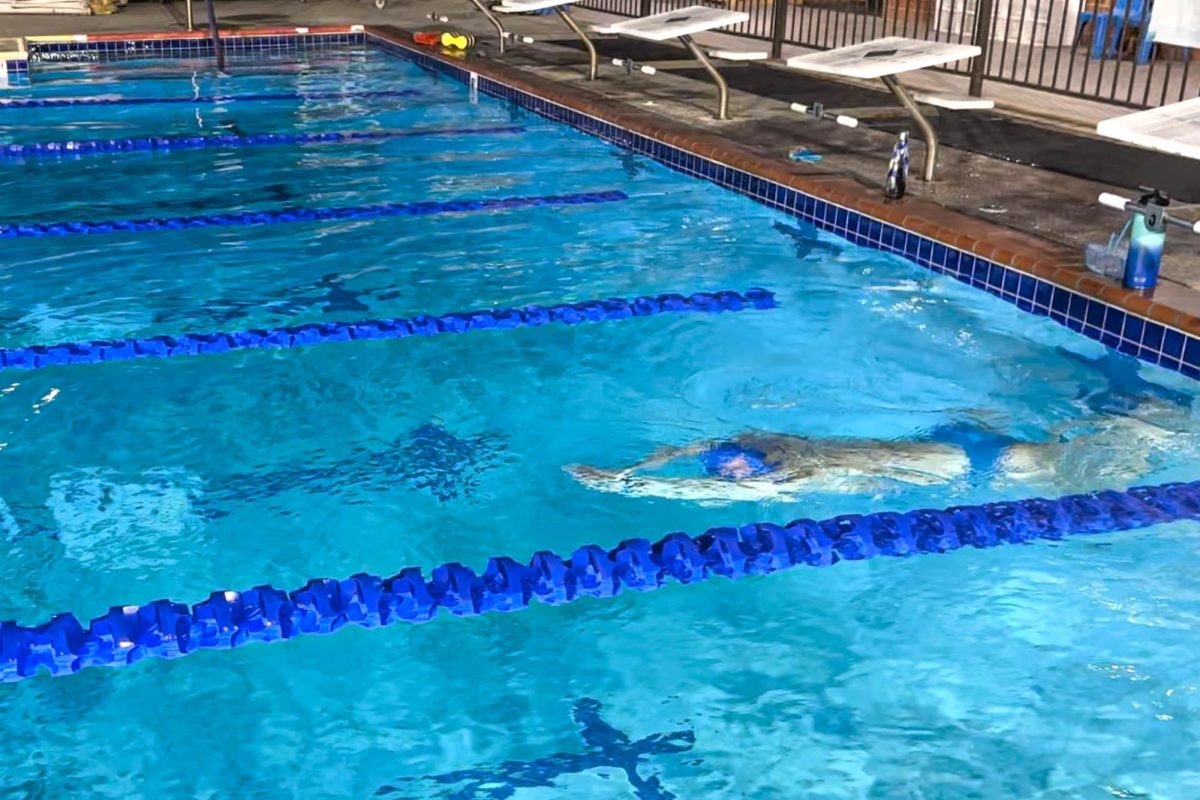

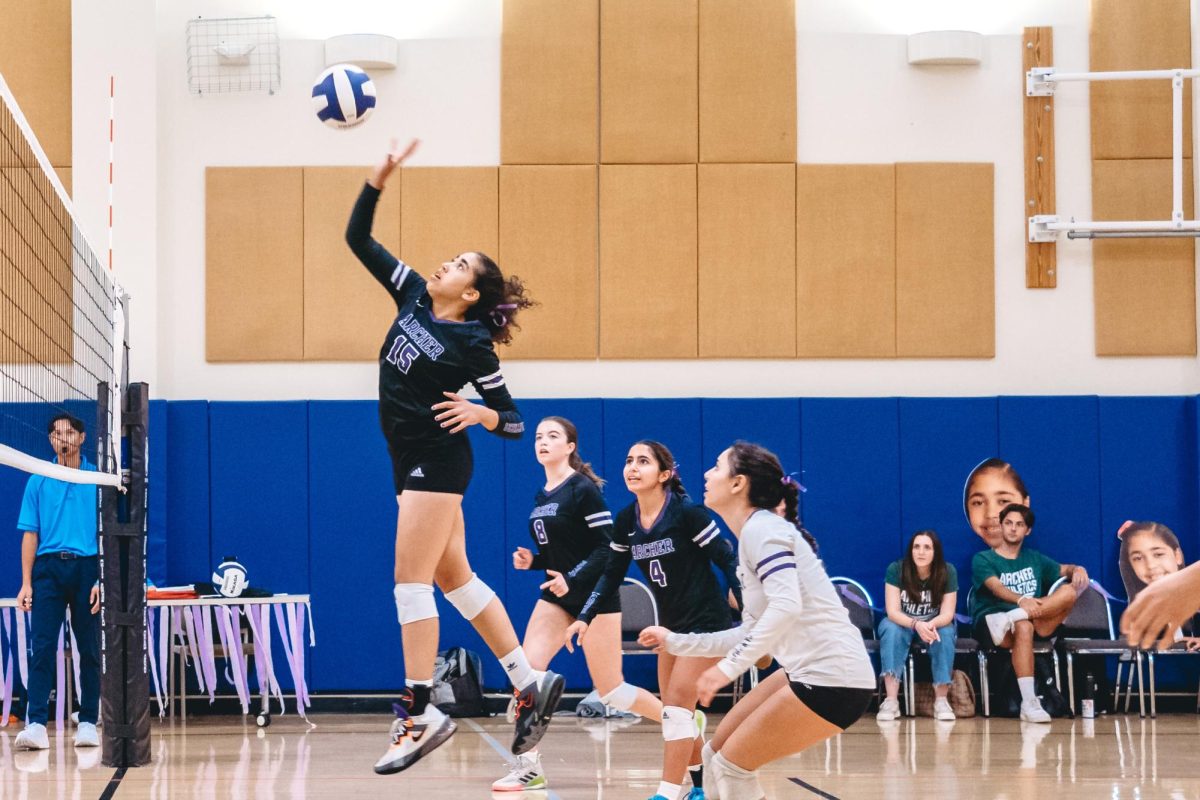
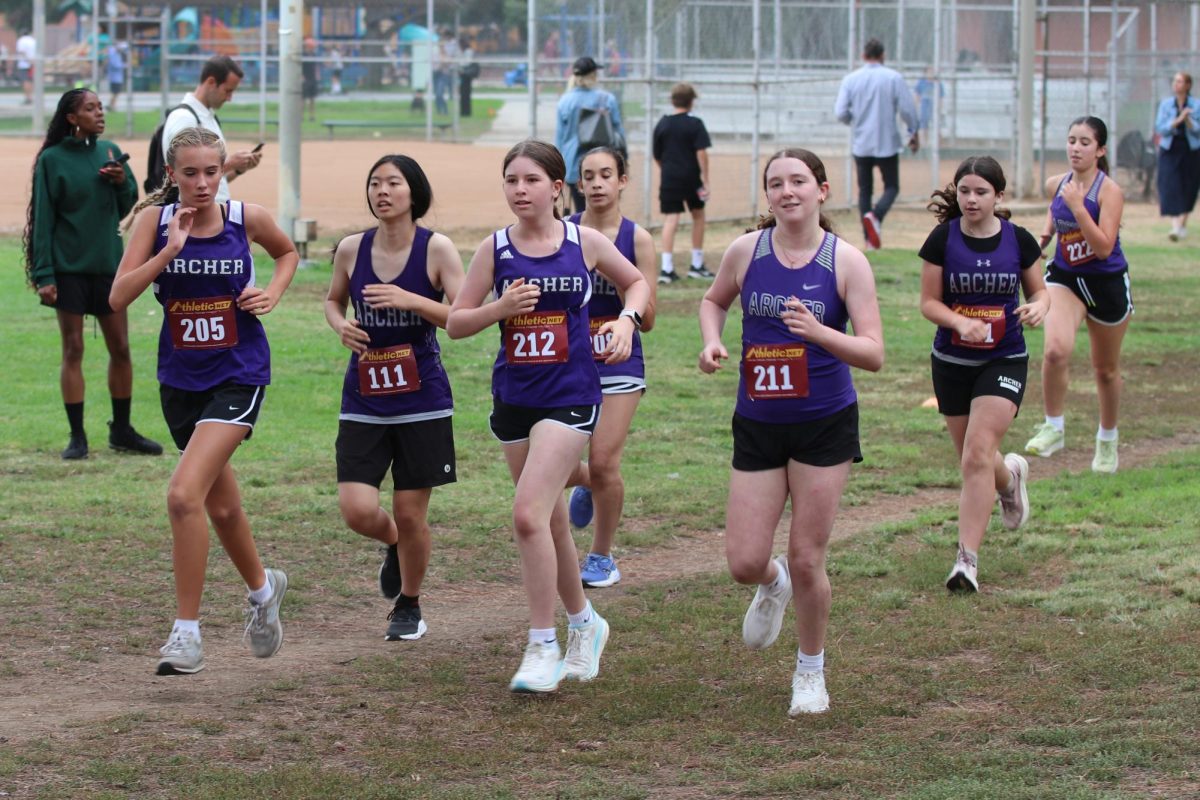
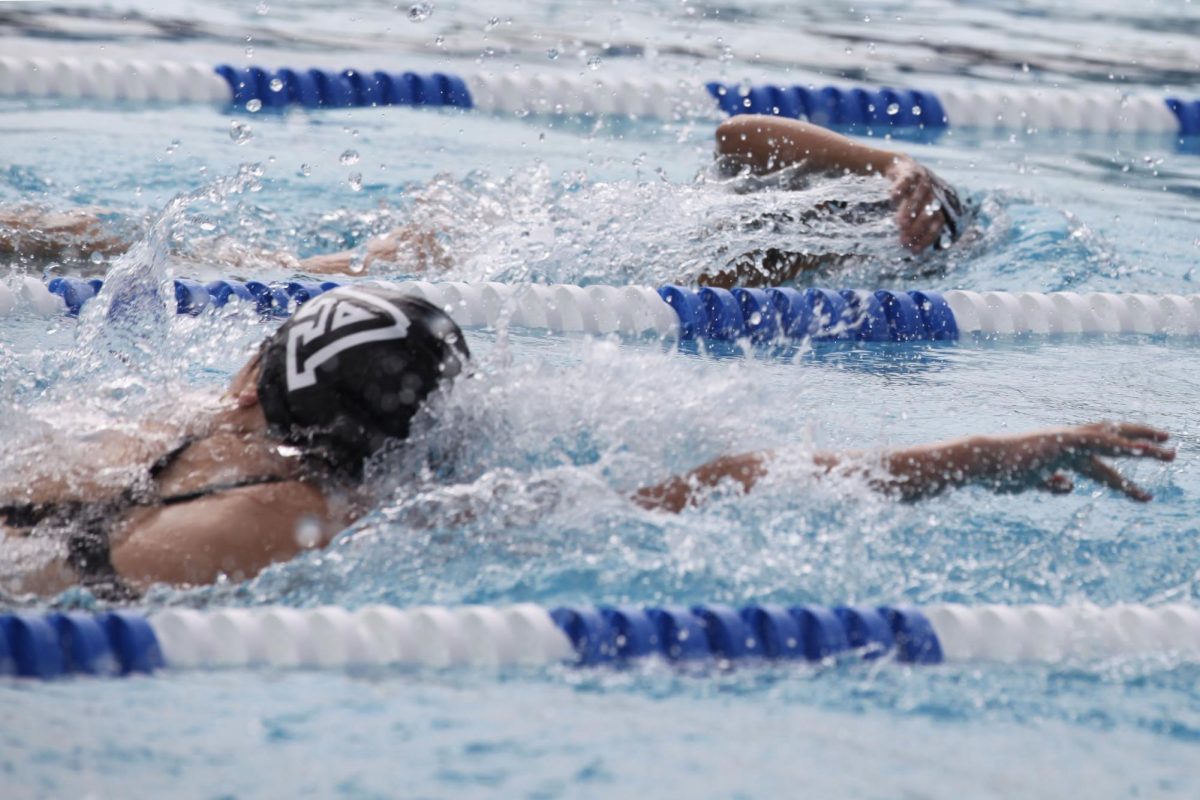


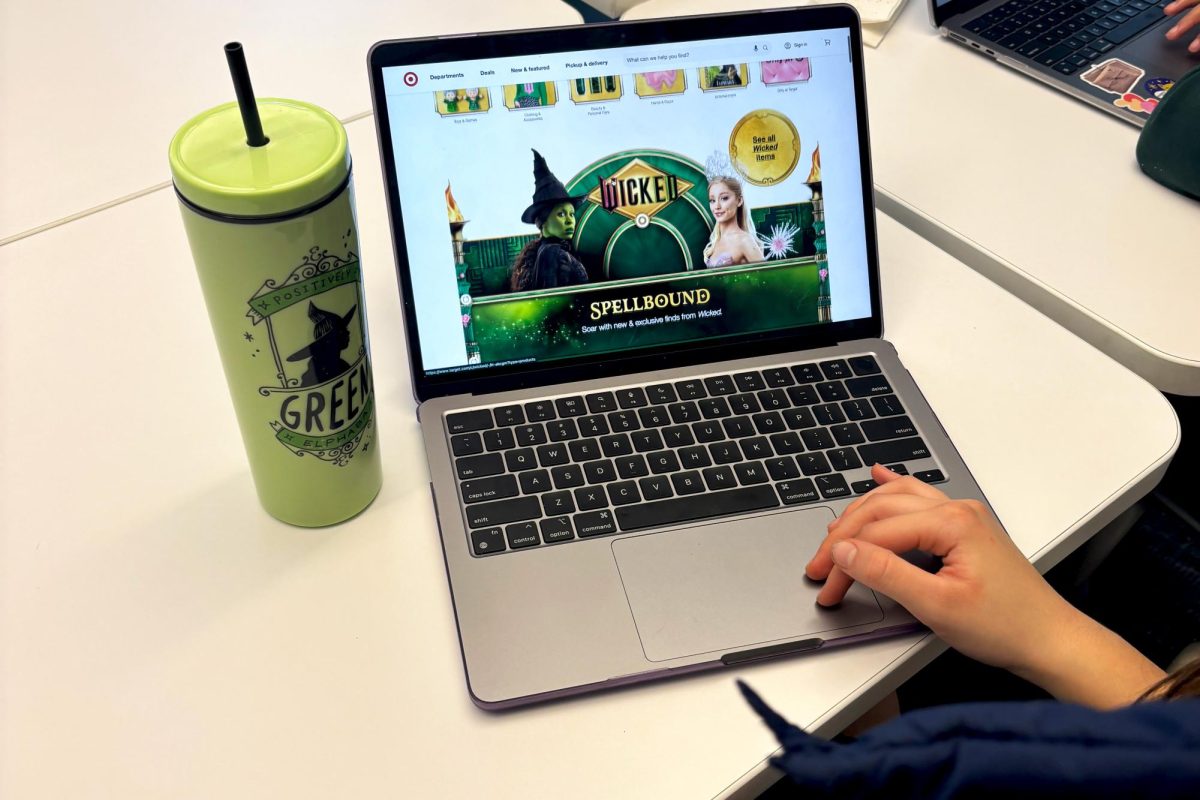
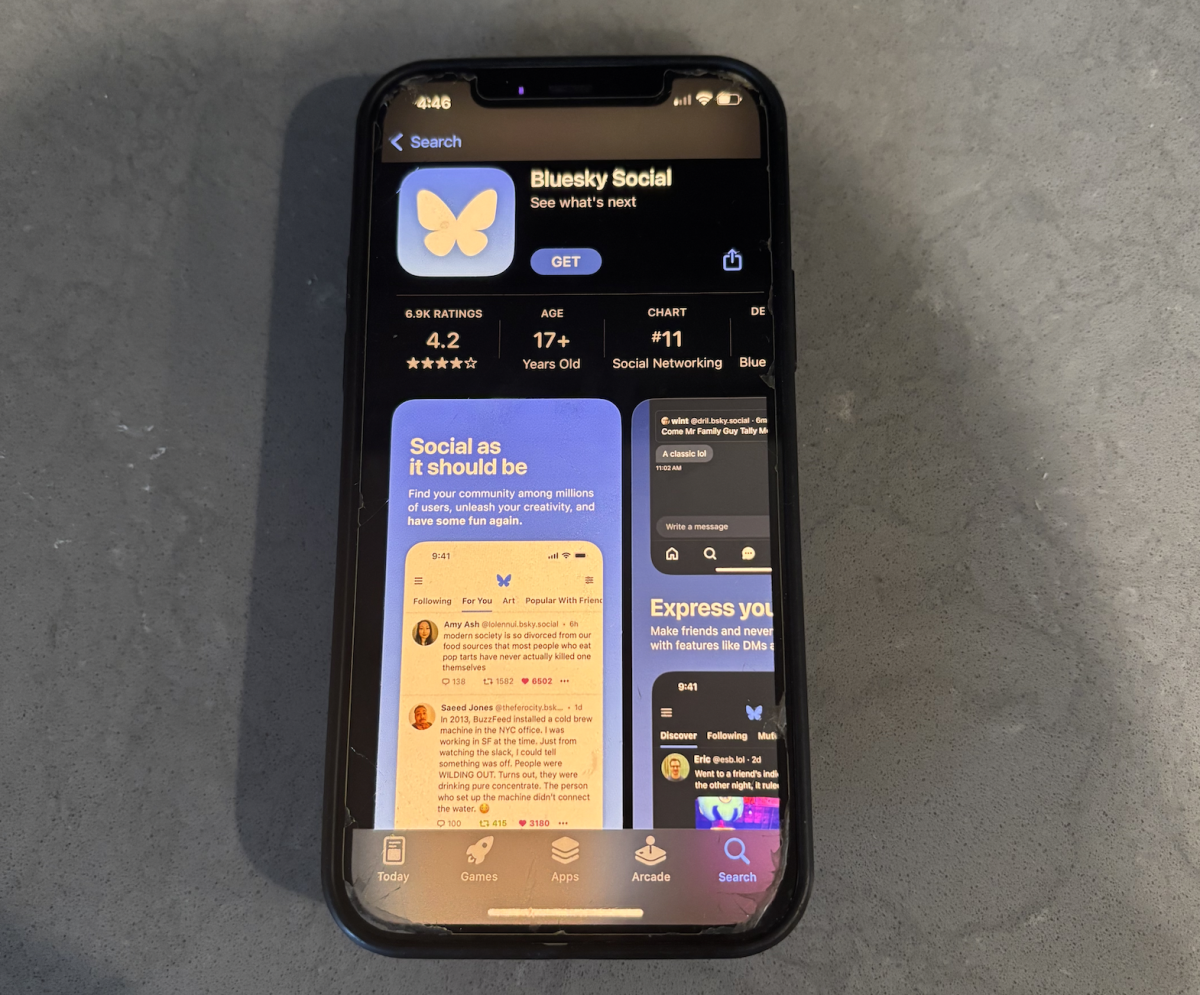





Tracey • Apr 8, 2024 at 8:18 am
Great article Katie Ray!
Meredith Ho • Mar 20, 2024 at 2:37 pm
Katie Ray!! I love how you talked about your journey in swim and the pressure you’ve been experiencing when racing. I can totally relate to everything you wrote, and it’s amazing to see how you’ve developed strategies to overcome the pressure and be the best teammate you can be. I absolutely love this article! 🙂
Janet • Mar 19, 2024 at 6:02 pm
Fantastic and inspiring article. Proud of you as an athlete and teammate! “You’ve got this!”